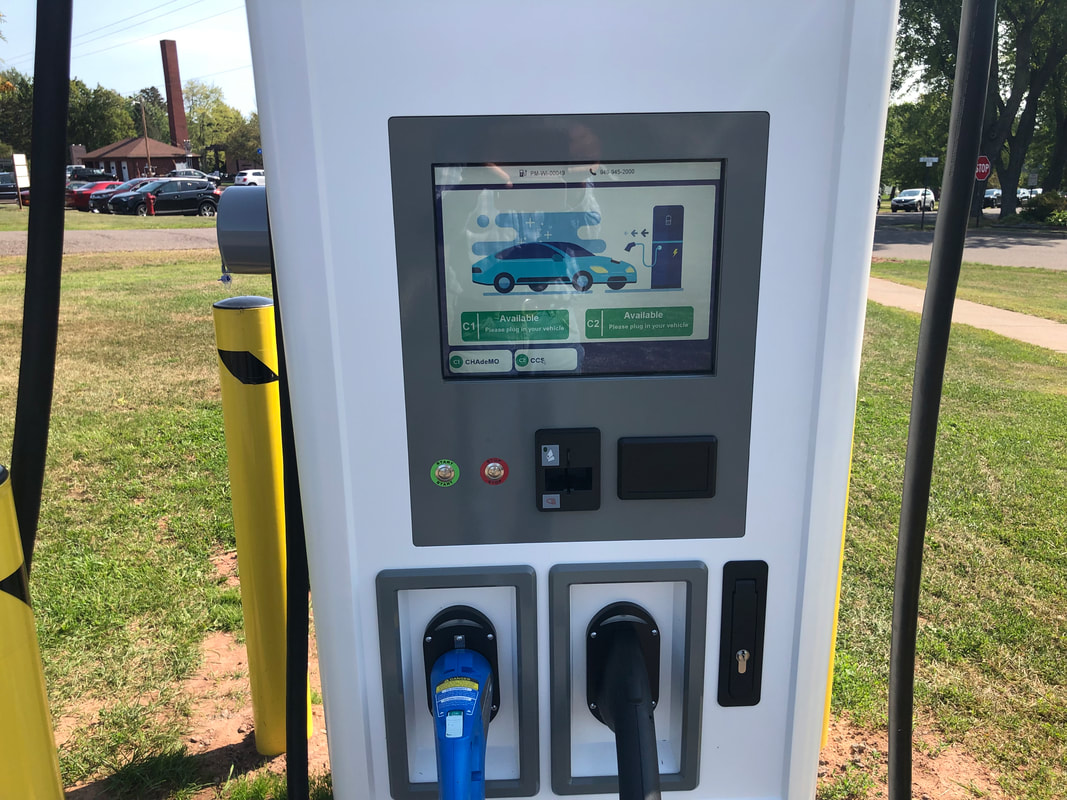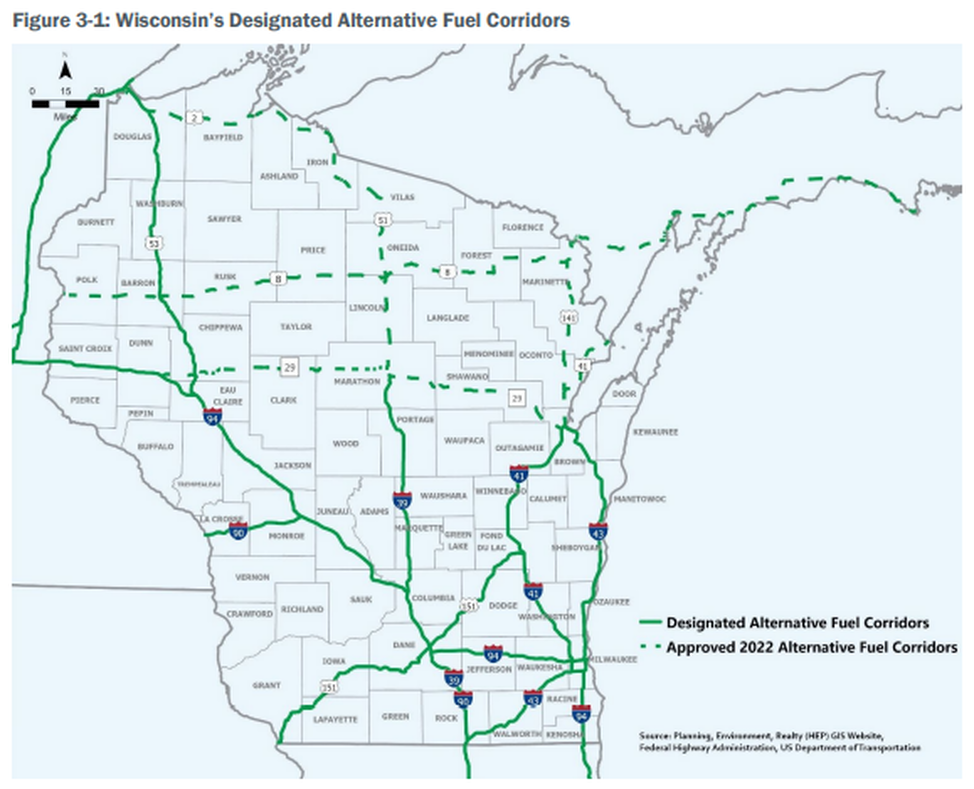Electric Vehicles
Electric Vehicles (EV) are gaining popularity as most of the major car companies have committed to the transition away from gasoline and diesel engines. Cheq Bay Renewables has started an initiative to help our region prepare for this transition so when you are ready to make the switch, you will have the necessary information to make an informed decision.
 BART's 50kW DC fast charger at Bayfield County Courthouse
BART's 50kW DC fast charger at Bayfield County Courthouse

